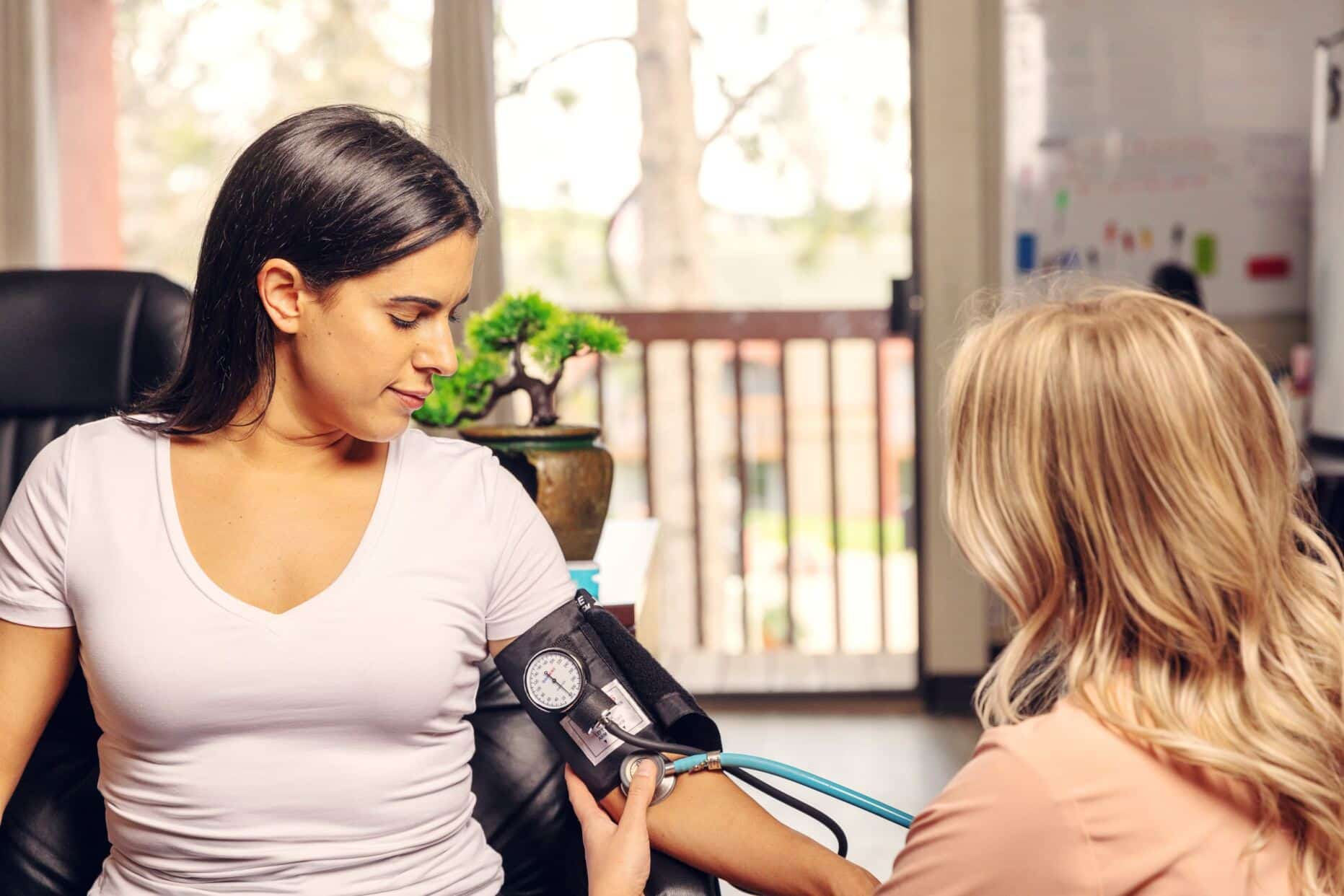It’s normal for a person to worry about the cost of inpatient drug rehab.
Inpatient treatment takes place in a residential setting and offers around-the-clock care. Stays usually last 30 or more days, and it tends to be costly. It also tends to be highly beneficial for people trying to overcome an alcohol or drug addiction.
A lot of people opt not to seek help because of the price. Or they fear health insurance won’t cover treatment.
Many insurance companies do provide coverage for addiction and mental health services. HAP, also known as Health Alliance Plan, is one of those companies providing coverage primarily for Michigan residents.
Affordable Care Act
The Affordable Care Act (aka Obamacare) says that all plans on the Health Insurance Marketplace must offer mental health and substance use disorder services as essential health benefits.
That means plans must cover
- Treatments for behavioral health, including psychotherapy and counseling
- Mental and behavioral health inpatient care
- Treatment for substance use disorders
Benefits will vary by state and health plan, however.
HAP plans are available on the marketplace (and on HAP’s site). They offer five kinds of individual health plans, including two types of health maintenance organization plans (full network and HMO choice); preferred provider organization (PPO), catastrophic (for people under 30), and virtual care.
HAP has qualified health plans (or QHPs) that are compliant with the ACA and cover essential benefits like emergency care and preventive services as well as mental health and addiction services (including behavioral health care).
HAP plan levels are categorized into metal tiers: Gold, Silver, Bronze, and Catastrophic. Bronze plans have the lowest monthly premiums but higher out-of-pocket costs (co-pays, coinsurance, and deductibles). Silver plans have higher monthly premiums, but out-of-pocket costs run lower. Gold plans have the highest monthly premiums but the lowest out-of-pocket costs.
Catastrophic plans are low-cost and are primarily for emergency treatment; these plans are for people under the age of 30 or who qualify for hardship exemptions.
Drug and Alcohol Rehab
Does HAP cover drug and alcohol rehab? Both inpatient and outpatient services for drug and alcohol rehab would be covered. Each plan will vary.
Bronze plans will have the highest deductibles and coinsurance, generally. Silver plans run around the middle, and Gold has low deductibles and coinsurance obligations.
Precisely what one’s deductible will be, as well as their coinsurance, will depend on the individual plan. In a few cases, out-of-network care might be covered (but at a higher coinsurance rate), but generally, HAP mostly only covers care that’s provided within the network.
Preauthorization is needed for many behavioral and substance use treatments.
HAP and Mental Health
Does HAP also cover mental health? Inpatient and outpatient behavioral health care (which includes mental health treatment) is covered. Counseling and outpatient care will have different copays by plan, and inpatient hospitalization will vary, too. Gold plans will have a smaller coinsurance obligation for patients (and some Gold plans may cover care entirely after the deductible is met for the year). Bronze plans will mean more out-of-pocket costs. Going in-network for care can save a lot of money.
HAP and Behavioral Health Insurance
HAP behavioral health insurance is part of all plans, but exactly how much a patient must pay for treatment will depend on their plan. Hospitalization for more intensive treatment will be more costly, but going in-network will mean a lower coinsurance. Counseling and therapy would be covered, too, but to save money a patient should also go in-network.
Checking if prior authorization is needed for care to be covered is always a good idea, too. A HAP representative could clear up any questions about what’s covered and where a patient can go.
HAP Inpatient Rehab
HAP inpatient rehab involves staying at a residential facility. Patients will receive care for mental health conditions or substance use disorders, and sometimes both. (Mental health and substance use disorders do sometimes co-occur.) Stays tend to last 30 or more days, and the rehab works with the patient to develop healthier coping mechanisms and reduce stress and other issues that can lead to use or relapse.
Inpatient rehab likely will be covered by HAP. Prior authorization is likely to be required, and the health insurance policy will determine exactly how much the patient will be responsible for paying.
HAP Outpatient Services
HAP outpatient services may involve counseling (often one-on-one) to continue to strengthen the patient’s sobriety and improve their coping abilities, so they avoid relapse.
Sometimes a patient may get outpatient care at the rehab, or they may receive it at a clinic or medical office closer to home.
Outpatient services will be covered, mostly for getting care at an in-network center or office. Co-pays will vary by plan.
HAP and Rehab
For many people, rehab is a stay at an inpatient facility where they’ll live on-site for 30, 60, 90, or more days. What you can expect from HAP in rehab includes:
- A full exam to determine the patient’s overall health
- Detoxification to rid the body of substances (sometimes with medical assistance to ensure withdrawal is comfortable and safe)
- Treatment (usually a mix of group and one-on-one therapies) that focuses on strengthening the patient’s sobriety. Sometimes medication-assisted treatment is offered, which blends psychotherapies and medications to manage withdrawal cravings and other underlying issues which can lead to relapse.
- Aftercare, which prepares the patient for life following rehab. It usually involves plans to check in with the rehab or to continue with counseling closer to home, to avoid relapse.
Length of Addiction Treatment
The length of addiction treatment HAP covers can vary. Most addiction treatment, when administered on an inpatient basis, tends to begin (and sometimes end) at 30 days. The National Institute on Drug Abuse stresses that everyone’s case is unique, but an adequate length of treatment tends to have better results. Residential or outpatient treatment is better when it goes on for 90 or more days. That tends to make things “stick” better. Not all insurers will be willing to approve 90 days on the spot, but often rehab centers will communicate with insurance companies to secure additional treatment time when they feel it would benefit the patient.
Does HAP Cover Suboxone?
Suboxone is the name brand of the combination of buprenorphine and naloxone medications. It’s used to help treat opioid use disorders. It’s commonly paired with counseling or behavioral therapies (as part of medication-assisted treatment).
Suboxone (and its generic equivalent) provides some of the desired effects of opioids but with less intensity. It also curbs cravings and withdrawal symptoms, reducing the likelihood of relapse.
Suboxone generally isn’t covered by HAP prescription plans, but the generic buprenorphine-naloxone formulation is. Because its generic prices should be lower, quantities may be limited due to it being a controlled substance, and sometimes prior authorization might be necessary.
Does HAP Cover Methadone Treatment?
Methadone is a drug approved for pain treatment (especially those who need pain managed around the clock). It also is approved for the treatment of opioid use disorders. That’s because it has a longer half-life so it produces some of the effects of opioids with less of the high that can drive people to abuse related substances. It also can help with withdrawal symptoms, reducing the odds of relapse.
Methadone is on HAP’s approved drugs list. It’s a generic medication so costs will be lower, but there may be limited quantities due to it being a controlled substance.
Paying for Services Not Covered
It can be daunting to consider paying for services that are not covered by a HAP insurance policy, since addiction treatment can be ongoing and expensive.
Some easy ways to lower costs include:
- Going in-network for services
- Check with HAP and your doctor about preauthorization and network requirements before getting treatment
HAP also has a health care cost estimator, which members can use to compare treatment costs. That can give a clearer idea of what you can expect to pay. Rehab centers can answer a lot of questions about costs and how to make your insurance work for you.
If some services are not covered, or if a place is out-of-network or your deductibles and coinsurance are too high, check with the rehab if you can pay in monthly installments. In some cases, financing may be available, too.
Sources
Medical disclaimer:
Sunshine Behavioral Health strives to help people who are facing substance abuse, addiction, mental health disorders, or a combination of these conditions. It does this by providing compassionate care and evidence-based content that addresses health, treatment, and recovery.
Licensed medical professionals review material we publish on our site. The material is not a substitute for qualified medical diagnoses, treatment, or advice. It should not be used to replace the suggestions of your personal physician or other health care professionals.






